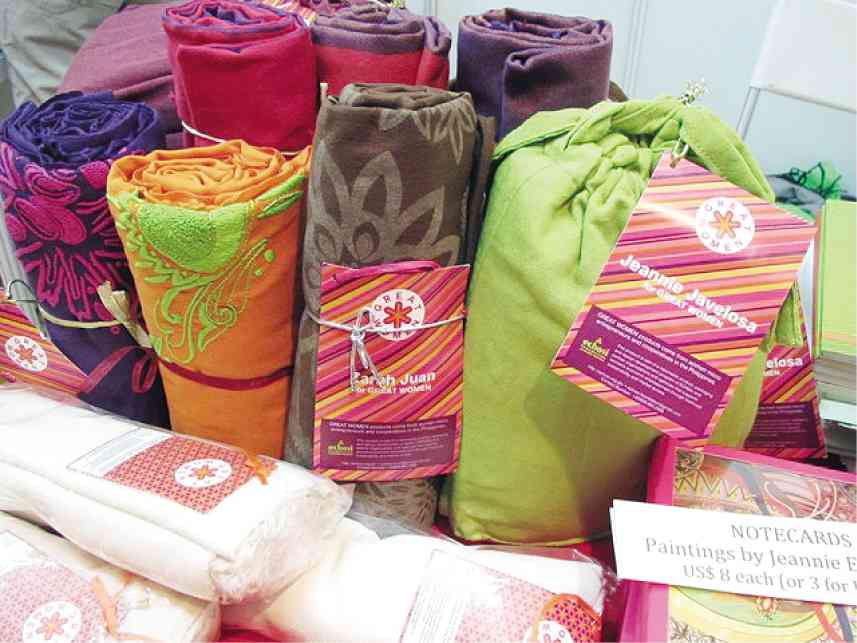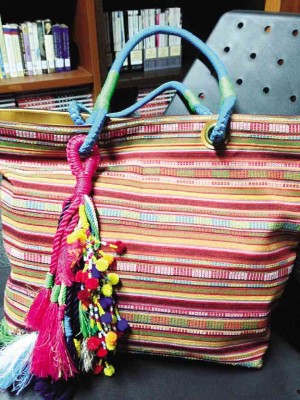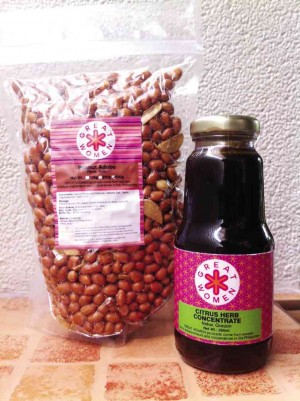Women find their place in market value chain

THROUGH the Great Women Project, packaging and design of local products are improved. PHOTOS BY Annelle Tayao-Juego
Women helping women.
This simple concept is the driving force behind a country-wide public-private partnership program that is giving female micro-entrepreneurs a leg up in the market value chain.
Dubbed Great Women, the program is spearheaded by Jeannie Javelosa, Chit Juan and Reena Francisco, the three women behind Echstore, a small retail chain that sells local artisanal and organic products.
The Echotrio, as the three business partners are collectively called, started Great Women as a partnership with the Philippine Commission on Women (PCW). PCW initially implemented a five-year project on electoral empowerment for women in underprivileged communities called Great, which was funded by the Canadian International Development Agency (Cida).
“However, [PCW] realized they couldn’t fully empower these women, because empowerment meant making their own money. Eight months before the project (Great) ended, PCW approached us for help,” said Javelosa, who was with Juan and Francisco at the soft opening of their newest Echostore (now with an Echodeli) in Salcedo Village, Makati.
Article continues after this advertisement“Our innovation, under the Echosi Foundation, was to provide market access for the women micro-entrepreneurs [through the Great Women program,” she added.
Article continues after this advertisementEchosi (Empowering Communities with Hope and Opportunities through Sustainable Initiatives) Foundation, according to its website echosi.org.ph, “is a nonprofit foundation that teaches sustainability issues for empowering marginalized groups, women’s groups and cultural communities.”
The Echotrio put up the foundation to further improve their suppliers’ product development and marketing. Javelosa is Echosi president.
The Great Women program started about two years ago, with the Echotrio conducting design clinics, product development training using available local materials and skills training.
Together with partner government agencies such as Department of Trade and Industry (DTI) and Department of Science and Technology (DOST), as well as local government units, the Echotrio conducted these training sessions in Bohol, Quezon, Iloilo, Bicol, Ifugao, Leyte and Davao. Designers such as Ann Pamintuan, Len Cabili and Lulu Tan-Gan also lent their talents to the program.
Around 20-30 women micro-entrepreneurs were chosen for Great Women, including 62-year-old Princess Kumalah Sug-Elardo, a coffee-maker from Panamao, Sulu; 39-year-old Bagobo weaver Vivencia Mamites, who makes inabal, a traditional cloth of the Bagobo-Tagabawa tribe; Ludivina Boston, 66, from Midsayap, North Cotabato, another weaver who has trained women on handloom weaving at the Rural Improvement Club; Emelia Galia, 44, heads a group of makers of cassava chips called the Bubon Food Processors Food Association in Baybay, Leyte; 38-year-old Ronavelle Amen from Iloilo who makes peanut products; and Teodora Aquino of Gainza, Camarines Sur, who makes crab paste.
Javelosa said they had to be specific in their workshops, teaching the women how to price their products based on cost of materials and labor, and how to create more appealing designs to capture the niche lifestyle market.
“There was one group that made wine. [We asked them], ‘Where are you going to bring that?” said Javelosa. “We can’t compete internationally with other wine-making countries. So we said, ‘This tastes more like vinegar—let’s make it vinaigrette.’”
Javelosa added that they were also very strict in choosing which entrepreneurs would be allowed to join the program.
“I told them, if you don’t have the discipline to become a businesswoman, then we don’t have anything to talk about,” she said.
The women micro-entrepreneurs had to go through four levels of assessment and workshops at the start of the project: First was product assessment and workshop; second, a design clinic and a check of the quality of food products; third, another clinic wherein participants were assigned “homework” to improve their products, and were taught how to cost their products and production; and lastly, preparation of their products for market testing and usage.
Those who weren’t able to meet the requirements or turn in their homework were cut from the group.
Phase 1 of Great Women ended last February, when the brand and its products were officially launched. Best-selling products include flavored peanuts, crab paste, flavored chips, vinaigrettes and dried noodles.
With the program’s success, the Echotrio is taking it one step further by making Great Women the country’s gender platform at the next Asia-Pacific Economic Cooperation (Apec) Summit, which the Philippines is hosting in 2015.
“[Cida] has approved the next phase [of Great Women] for the next five to six years,” said Javelosa. They are now concentrating on introducing the Great Women brand and products to the international market.
Thanks to a grant given by the Peace and Equity Foundation, Javelosa and Juan will be at the New York Artisan Resource Trade Show this month to showcase chic bag designs by local weavers, including those created by Bagobo weaver Vivencia Marites.
“I, personally, am focusing on the indigenous textiles and design,” said Javelosa. “I want this to become more culture-driven.”
Javelosa added that, under the Echosi Foundation, the Great Women brand will be open for licensing.
“We are targeting big companies (for the licensing) so we can really spread the Great Women brand,” she said.
The Echotrio are also tapping the Department of Agriculture, National Commission for Culture and the Arts, Center for International Trade Expositions and Missions (Citem) and the USAID to further strengthen Great Women.
“I’m so passionate about this,” said Javelosa, “because I’ve seen the good that can come out of it.”

